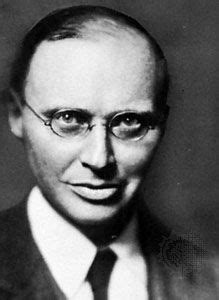A Quote by Stephen Covey
Keeping a personal journal a daily in-depth analysis and evaluation of your experiences is a high-leverage activity that increases self-awareness and enhances all the endowments and the synergy among them.
Related Quotes
Keeping a journal has taught me that there is not so much new in your life as you sometimes think. When you re-read your journal you find out that your latest discovery is something you already found out five years ago. Still, it is true that one penetrates deeper and deeper into the same ideas and the same experiences.
Your own private journal should record the way you face up to challenges that beset you. Do not suppose life changes so much that your experiences will not be interesting to your posterity. Experiences of work, relations with people, and an awareness of the rightness and wrongness of actions will always be relevant.
Buddhist epistemologists do argue that rational analysis leads to the conclusion that rational analysis cannot give us infallible access to truth, including that one. That's not self-defeating, though; it only induces an important kind of epistemic humility and a clearer view of what we do when we reason. We engage in one more fallible human activity among many.
I want to say that what is cool about writing self-aware first person narrative is that the awareness is not necessarily the same awareness of the reader. I have a story coming out in the Paris Review and it's about a hipster. He think's he's self-aware, he's very introspective and analytical, but when you're reading it you can totally see through his self-analysis because you have a higher awareness than he does. I like playing with that too.
Gratitude is a mindful awareness of the benefits of life. It's the greatest of virtues. Studies have linked the emotion with a variety of positive effects. Grateful people tend to be more empathetic and forgiving of others. People who keep a gratitude journal are more likely to have a positive outlook on life. Grateful individuals demonstrate less envy, materialism, and self-centeredness. Gratitude improves self-esteem and enhances relationships, quality of sleep, and longevity.
Every time we choose action over ease or labor over rest, we develop an increasing level of self-worth, self-respect and self-confidence. In the final analysis, it is how we feel about ourselves that provides the greatest reward from any activity. It is not what we get that makes us valuable, it is what we become in the process of doing that brings value into our lives. It is activity that converts human dreams into human reality, and that conversion from idea into actuality gives us a personal value that can come from no other source.
Ineffective people live day after day with unused potential. They experience synergy only in small, peripheral ways in their lives. But creative experiences can be produced regularly, consistently, almost daily in people's lives. It requires enormous personal security and openness and a spirit of adventure.
When you look back at your own life, you see ... the sufferings you went through, each time you would have avoided it if you possibly could. And yet, when you look at the depth of your character now, isn't a part of that a product of those experiences? Weren't those experiences part of what created the depth of your inner being?
You are awareness. Awareness is another name for you. Since you are awareness there is no need to attain or cultivate it. All that you have to do is to give up being aware of other things, that is of the not-Self. If one gives up being aware of them then pure awareness alone remains, and that is the Self.




































